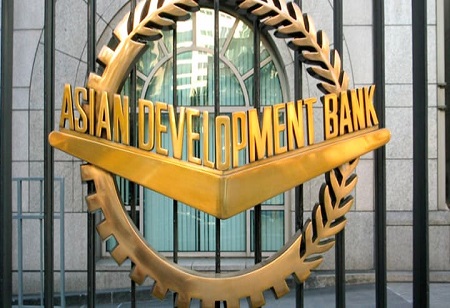
Asian Development Bank inks $41 Million Financing Package with Maldives to Support SME, Tourism

 The Asian Development Bank (ADB) and the Bank of Maldives (BML) signed a $41 million financing agreement to support locally owned small and medium-sized enterprises (SMEs) and tourism.
The Asian Development Bank (ADB) and the Bank of Maldives (BML) signed a $41 million financing agreement to support locally owned small and medium-sized enterprises (SMEs) and tourism.
The Manila-based ADB has arranged, structured, and syndicated the entire financing package, which includes a loan of up to $13 million from the ADB's ordinary capital resources, a parallel loan of up to $13 million from the Japan International Cooperation Agency, and a parallel loan of up to $5 million from the Development Bank of Austria, according to Xinhua.
The Asian Development Bank (ADB) said it blended the project's debt financing with a concessional loan of up to $9 million from the Canadian Climate Fund for the Private Sector in Asia II (CFPS II) and a grant of up to $1 million from the ADB's Asian Development Fund (ADF)-Private Sector Window to improve development impact and address bankability issues relating to blue economy transactions in the Maldives (PSW).
"The blue economy is crucial to future prosperity in Maldives, as its people and economy are intrinsically linked to the health and wealth of the ocean, coral reefs, beaches and marine life. However, investments in the blue economy, including by SMEs and through climate adaptation projects, have been lacking," ADB Director General for Private Sector Operations Suzanne Gaboury said.
She went on to say that the ADB partnership with BML, the Maldives' largest bank, will provide much-needed financing to the tourism sector as well as support for climate projects and locally owned SMEs, including those owned and run by women.
As stated by the ADB, at least 60% of the loan package will go to SMEs, with the remaining 5% going to women-owned or led businesses.
As per the ADB, the CFPS II loan and PSW grant will help BML support and promote climate change mitigation and adaptation projects centred on the blue economy.
Because of its fragile ecological profile and low elevation, the Maldives is extremely vulnerable to natural hazards and extreme climate events.
Furthermore, the Maldives lacks domestic conventional energy resources and relies on imported fossil fuels.
Based on the statement by ADB, financing from ADB-administered funds will help improve the economy's resilience and sustainability, particularly in the tourism sector.

